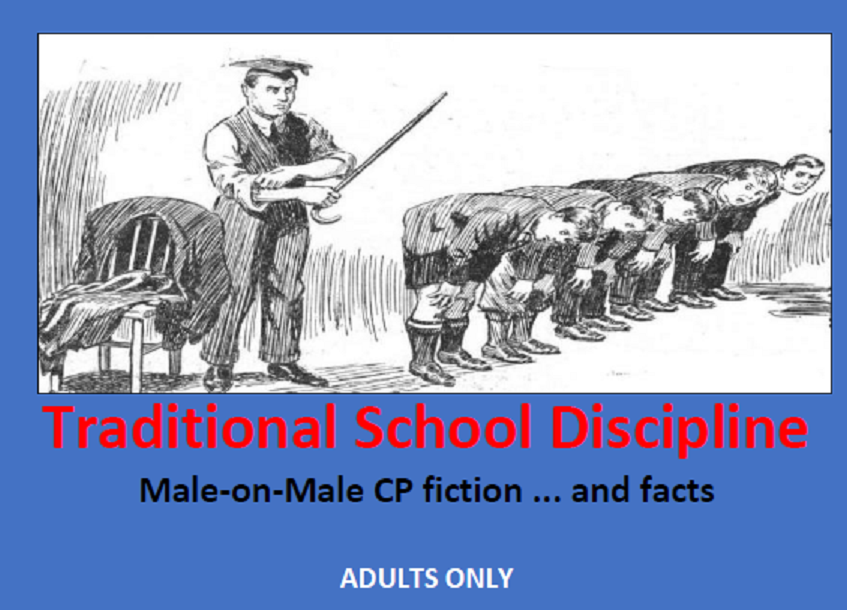Remembering Anthony Chenevix-Trench, the famous flogger
As headmaster of Eton in the 1960s he introduced private caning, administered to the bare posterior of the boy, who was required to lower his trousers and underpants and bend over in his office. A few boys resented this and felt that a caning over the trousers, as was standard practice at nearly all other schools by this time, would have sufficed.
Anthony Chenevix-Trench was headmaster of Eton
(one of the most famous schools in the world) for most of the 1960s and had a
reputation for his excessive use of corporal punishment that lives on today.
Before Eton he had been a housemaster at Shrewsbury School and headmaster at
Bradfield College (both elite public schools.) He later became headmaster at
Fettes College until his death in 1979.
An extensive Wikipedia entry reports he “was asked to leave [Eton] in 1969
after disagreements with housemasters and an unpopular attitude to caning,
which became the subject of a press controversy after his death”.
 |
Anthony Chenevix-Trench:
Source Wikipedia
Detailing his time at Eton, Wikipedia cites a Private Eye article
‘Jolly
Beating Weather’ from 1969 which reported Chenevix-Trench’s approach to
corporal punishment.
Wikipedia says, “It had always
been traditional and frequent at Eton. Until he became headmaster, disobedient
students could be publicly birched by the headmaster or Lower Master (deputy
head) on their bare buttocks as punishment for serious offences. In addition,
senior students at the school were permitted to cane other boys across the seat
of the trousers, and this was routine.”
It says, “The modern era of
adolescent challenges to authority, combined with the existing tradition of
powerful housemasters expecting to make their own decisions, quickly led to
problems. In June 1965 Chenevix-Trench failed to prevent a debate proposed by William
Waldegrave, then president of the powerful self-selected pupil society
known as Pop, on the abolition of corporal punishment, and the motion was only
narrowly defeated. Chenevix-Trench caned sixth-formers for trivial offences
against the urgings of the Captain of the School (head boy); he caned one
editor of the Eton Chronicle and backed down after threatening to cane
another; and on a later occasion he agreed with the Captain of the School and
his housemaster to punish an offender in a formally witnessed ceremony, but
then gave a private caning instead without discussing it with them.
“The long history at Eton
of birchings being public, and most canings being widely witnessed, meant that
Chenevix-Trench’s preference for private beatings was viewed with suspicion. In
1966 the Provost made him promise that he would no longer issue beatings in
private. He did not keep the promise, thus storing up yet more distrust.
“To replace headmaster’s
birching, he introduced private caning, also administered to the bare posterior
of the boy, who was required to lower his trousers and underpants and bend over
in his office. A few boys resented this and felt that a caning over the
trousers, as was standard practice at nearly all other schools by this time,
would have sufficed.”
Wikpedia reports, “Tim Card's book Eton Renewed,
published in 1994, finally made public the fact that Chenevix-Trench had
not left Eton of his own accord. The press of the time were more than
interested, fascinated by the idea that there might be some schools that still
beat their pupils.”
There was extensive coverage, especially in the more
‘serious’ broadsheet newspapers.
Christopher Hourmouzios reminisced to The Times: “He once flogged the
living daylights out of me with a strap on my bare backside, and my brother
tells me that the ‘headman’, as we called Trench, once beat him and a whole
divinity class of more than twenty boys one afternoon!”
Nick Fraser, in his book The
Importance of Being Eton: Inside the World’s Most Powerful School, was
much more blunt. Reviewing the book, The Sunday Times said that he “was
subjected to a furtive sexual assault by the headmaster, Anthony
Chenevix-Trench, whose proclivities in this area were not made public until
after his death, and it damaged him, he says, ‘more than I could ever have
brought myself to express’”
The
Independent on Sunday reported
in 1994: “It is not recorded whether Anthony Chenevix-Trench, the former Eton
headmaster, quoted Proverbs 13:24 [Whoever
spares the rod hates their children, but the one who loves their
children is careful to discipline them] to the boys he flogged, but glowing testimonies from them following
allegations that he was a brute and an alcoholic suggest the essence of the
quotation sank home. Card writes that staff at the school were embarrassed by
Chenevix-Trench’s drinking and that he ‘regarded corporal punishment not as a
last resort, but almost as the first’”.
The Independent went on to say that the numerous letters to
newspapers by former pupils showed a marked disparity between some who
described Chenevix-Trench as “upright, justified, a fine educationist, a victim
even”, and others who recalled “a monster of depravity”.
Picture credit: Sting Pictures
For more on Anthony Chenevix-Trench, click here
For more posts in the ‘Remembering’
series, click here
For more items involving Eton,
click here
Traditional School Discipline
Traditionalschooldiscipline@gmail.com







Comments
Post a Comment